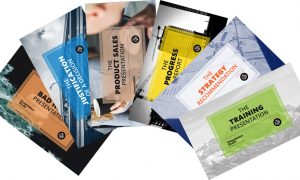What Should I Do With My Hands?


Many people will naturally feel uncomfortable when speaking in public, with all eyes upon them. But while we may be concentrating hard on our words, our hands could be sending out the wrong message without us even realising it. Sims Wyeth reminds us to make sure our hand gestures are not distracting from our message but that these subtle messages we are unwittingly sending are in fact adding to our message in a positive way.
Gestures are important for public speakers
The right movements add to an overall picture of confidence and composure. When your hands and arms act as co-communicators, they become visual cues for your listeners.
Think of a maestro conducting an orchestra. Watching the movements is a sort of dance that accompanies the musical piece that you are hearing, and the two together help you stay focused and appreciate the performance.
Did you know, however, that some gestures – many that you probably make because you are unaware you are even doing them – can damage your credibility in front of your listeners?
I encounter these gestures, or finger foibles, time and time again. I think they are ruinous to the overall image of a public speaker or presenter, and I always coach my clients to replace these fidgety gestures with stronger, more authoritative gestures.
In a nutshell, using your hands gives your message power and lends you executive presence. On the other hand (no pun intended), tiny fidgets distract your listeners and invite their minds to wander.
Use your whole hand to avoid unintended rude gestures
Believe it or not, many people inadvertently use their middle finger when they are pointing to a slide. Others rely on their pinky. Both of these pointing strategies spell disaster. One for obvious reasons: you are giving your audience ‘the bird’. Pinkies, I find, can come across as prissy.
Gesture using your whole hand. It will make you more powerful, and it automatically avoids the pitfalls of pinkies and middle fingers.
Keep your fingers away from your face
Face it, if your fingers comb through your hair, or rub around your eyes, or start fiddling around your nose, people are going to focus on your overall appearance and hygiene.
They will stop listening to your message and start wondering why you are picking your nose – even though you may merely be scratching near your nose.
It’s a bad impression to leave in the minds of your listeners.
When we rehearse, I have my clients practice aligning every part of their message with a companion gesture. Many of us have habits that we may not always be aware of: scratching an itch, fussing with hair, or touching areas of the face. Believe me, these habits can be distracting enough to others in a casual one-on-one exchange. When the ‘spotlight’ is on you, they are elevated to a level of downright disturbance.
Leave your fingernails alone
When I see people glide one fingernail behind another to remove dirt, or pick at a stray cuticle, or peel off the tip of a broken nail, I think two things:
- This person needs a manicure.
- This person is not at all interested in what I’m talking about.
These small habits, which most likely arise from nerves or habit, do NOTHING to help you in ANY conversation. Up on stage, they will come across as arrogant, bored, and/or absent-minded. These are not good take-aways for your talk.
Again, in rehearsal, be sure you align a strong gesture with each part of your talk and practice them! Training your hands and arms to support your messages will keep your fingers from undermining your persuasiveness.
Don’t fiddle with your wedding ring
Often, especially once the ‘meat’ of the talk is over and we’ve moved to a more conversational Q&A style, I see people standing on stage twisting their wedding rings.
This signals a couple of things: this speaker is nervous; or he or she is thinking more about wrapping up and getting off the stage than about the audience.
Again, not the impression you want to make with your audience. Make sure you look and sound as polished in this section of your talk as you might during the body of the talk.
If you don’t rehearse, you will most likely revert back to the negative habits you are unaware of: the subtle wriggles, twitches, and squirms with your fingers that distract from the delivery skills you are working hard to improve.












John Zimmer
19th July 2017 at 9:06 am
When you stop and think about it, it is odd that people don’t know what to do with their hands when they speak in public. I mean, we carry our hands around with us 24 hours a day and we certainly are not thinking about them when we are working or shopping or having a beer with friends, etc. They just move naturally because we are not focused on them. And therein lies the secret.
While I agree with Sims’ advice above and share the same thoughts with my clients, I also tell them that when they are 100% focused on the audience and the message, their movements on stage will become much more natural. That is something that comes with time and with practice.